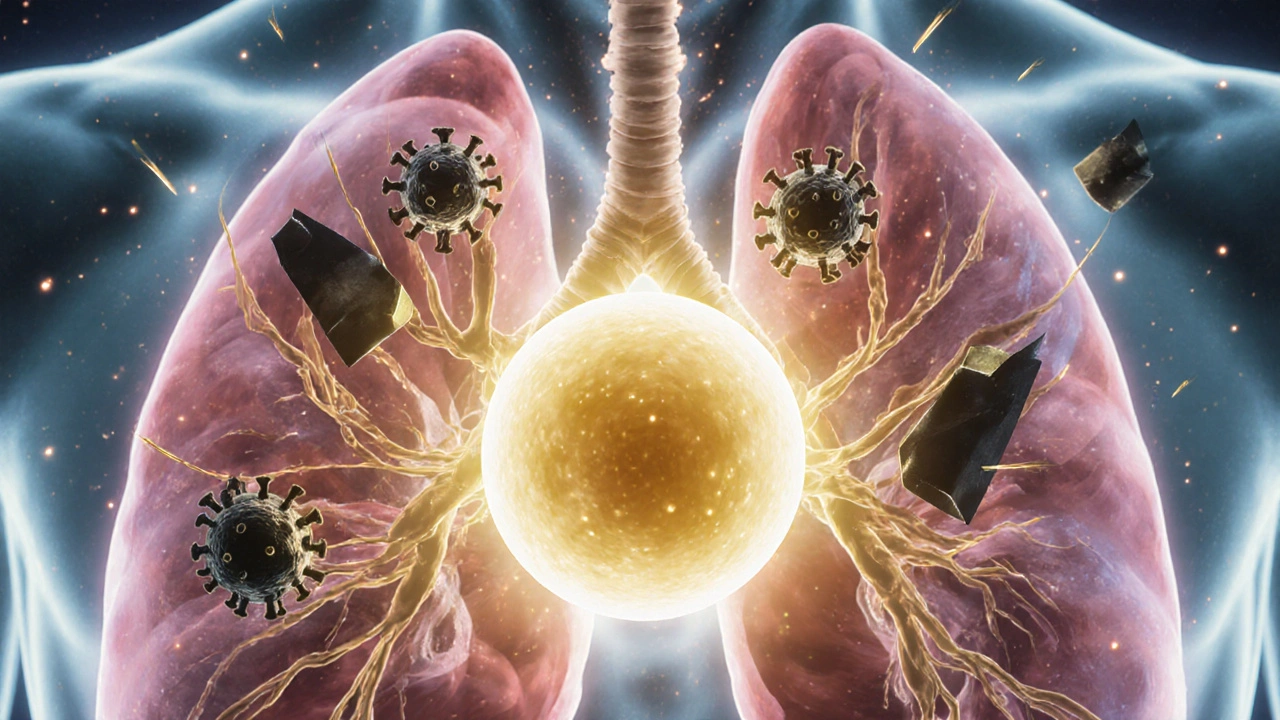Immune System: How It Works and What Weakens It
When your body fights off a cold, a flu, or even a tiny cut that gets infected, it’s your immune system, the body’s defense network that identifies and destroys harmful invaders like viruses, bacteria, and fungi. Also known as the body’s defense system, it’s not just one thing—it’s a whole team of cells, organs, and proteins working together every single day, often without you even noticing. Most people think of the immune system as something you boost with supplements or orange juice, but that’s not how it really works. It’s not a flashlight you turn up brighter—it’s a smart, adaptive system that learns, remembers, and responds based on what it’s seen before.
Behind every cold you shake off or vaccine you get is your immune response, the specific way your body recognizes and neutralizes a threat, from producing antibodies to activating white blood cells. This response can be weakened by chronic stress, poor sleep, or long-term use of certain medications like corticosteroids—something you’ll see discussed in posts about budesonide, a corticosteroid used for inflammation and autoimmune conditions like Crohn’s disease and ulcerative colitis. When these drugs suppress inflammation, they also quiet down parts of your immune system. That’s useful for autoimmune diseases, but it leaves you more open to infections if not managed carefully.
Your immune health, the overall strength and balance of your body’s defense mechanisms isn’t just about what you eat—it’s about how you live. Chronic sleep loss, constant stress, and even too much sugar can throw your immune system off balance. Meanwhile, things like regular movement, staying hydrated, and avoiding smoking do more than just sound good—they help your immune cells function better. You won’t find a magic pill for this, but you will find real advice in the posts below about how medications, lifestyle, and even gut health connect to how well your body defends itself.
Some of the conditions covered here—like prolactinoma, a benign brain tumor that alters hormone levels and can indirectly affect immune function, or thyroid disorders, which can slow down or overstimulate immune activity—show how deeply your immune system is tied to other parts of your body. When your thyroid goes haywire or your prolactin levels spike, your immune system doesn’t ignore it. It reacts. And sometimes, that reaction turns against you.
What you’ll find below isn’t a list of miracle cures. It’s a collection of real, practical insights from people dealing with immune-related conditions—whether it’s managing inflammation with budesonide, avoiding drug interactions that weaken defenses, or understanding how common meds like anticholinergics can fog your brain and mess with your body’s natural balance. These aren’t theory pieces. They’re about what works, what doesn’t, and what you need to watch out for when your immune system is under pressure.
Echinacea and Immunosuppressants: Why Mixing Them Can Be Dangerous
Echinacea may boost your immune system, but if you're on immunosuppressants, it can interfere with your medication and lead to serious health risks. Learn why experts say to avoid it completely.
How Calcitriol Affects Respiratory Health and Why It Matters
Calcitriol, the active form of vitamin D, plays a key role in lung defense, reducing infections and inflammation. Low levels are linked to worse asthma, COPD, and frequent respiratory illnesses. Learn how to support your respiratory health with sunlight, diet, and safe supplementation.

